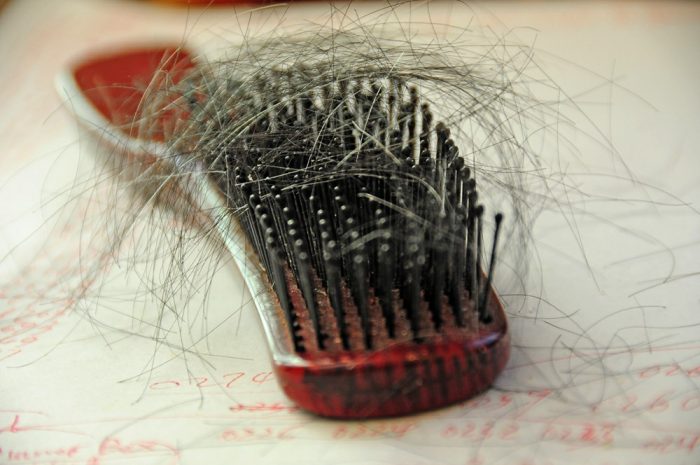You realized that hormonal levels are important in maintaining your hair. There are other reasons, though, and they are aspects that should be borne in mind. One of them is iron levels. And although it is more commonly found in women, men can also be affected.
Anaemia
The incidence of anaemia in menstruating women is severely underestimated, but even more so is the incidence of low iron levels, which is not necessarily the same thing. Anaemia is measured by haemoglobin, and is probably the most commonly measured constituent in a blood test. It measures red blood cells, the normal reference range being approximately 11.5–15.5 depending on the testing laboratory. Any reading below 0.5 higher than the low point (i.e. if 11.5 is lowest, anything below 12.0) could be a factor in hair thinning.
However, haemoglobin is only one of many iron tests; another is ferritin. Serum ferritin is a good indicator of available iron stores in the body. Decreases in ferritin levels, even if the haemoglobin is normal, can effect hair follicle function. The average reference ranges of ferritin are 15–170 (again, it varies with each laboratory). Recently, it has been established that anything below 27 in women is questionable as far as iron deficiency anaemia is concerned. However, for optimum hair follicle function, ferritin should be at a minimum of 70.
Many women go to their doctor for blood tests, anaemia being the most common, because most women suspect that anaemia can affect their hair–and although they would have a ‘full blood count’, ferritin is rarely included. It would not be considered relevant by your doctor. But it certainly is relevant, and iron medication from your doctor can prove to be extremely beneficial. It takes a long time to increase ferritin levels, perhaps as much as six months or more, so you don’t get an immediate effect on your hair. However, as your ferritin increases, your hair will progressively benefit.
Iron is a mineral, and although it is one of the most important for your hair, there are others to be considered, such as zinc, magnesium and copper. The interaction between iron, zinc, copper and magnesium is complicated, and a low or high level of any could be a factor. Taking a well formulated mineral supplement could be helpful, irrespective of suspecting an imbalance.
Thyroid
The thyroid gland is crucial in maintaining the body’s metabolism by controlling the production of proteins and tissue utilization of oxygen, thus affecting the hair follicles. Understanding thyroid function and its effect on hair growth is very complicated, and I do not want to tempt you to blame a thyroid dysfunction for your hair fall or thinning hair. On the other hand, it may be useful for you or your doctor to realize that there is a possibility of having thyroid readings in the normal reference range but it still having an effect on your hair. That is, as with many blood test results, low normals or high normals can be one of the triggers.
Hypothyroid (low) or hyperthyroid (high) definitely affects hair adversely, but these are easily diagnosed by low or high thyroid testing levels. It is the ones on the cusp that sometimes need a mild degree of medication, but it is only available on prescription. However, your doctor may be reluctant to prescribe it if you are in the normal reference ranges. A further complication is that thyroid production can be affected by other conditions: drugs, oral contraceptives, pregnancy and menopause for example. Long-standing hypothyroids may result in anaemia; people from developing countries may suffer from low iodine intake, which effects the thyroid and therefore the hair.
Two quite common thyroid diseases are Hashimoto’s (hypo) and Grave’s (hyper). Either of these would have other symptoms apart from hair loss. The high thyroids, for example, may have high blood pressure, a rapid heartbeat, increased sweating, insomnia, slightly protruding eyes and weight loss in spite of increased appetite. The low thyroids may experience, amongst other things, a slower pulse, hoarser voice, intolerance to cold, weight gain, thinner and dryer hair and loss of some eyebrow hair. If you begin to notice any of these, it would be as well to check with your doctor. There are few supplement like this, that may help your hair to recover from any metabolic issue or hormonal imbalance.
Almost without exception, women in particular will have had their thyroid checked before going to physician for a hair problem–many of them having mild symptoms as mentioned, but still just in the normal range where medication is deemed unnecessary. Hair sensitive or hair sympathetic doctors seem in the minority, and as with blood tests and measurements for iron levels, thyroid measurements are accepted without due regard to their effect on the hair.







Read 0 comments and reply